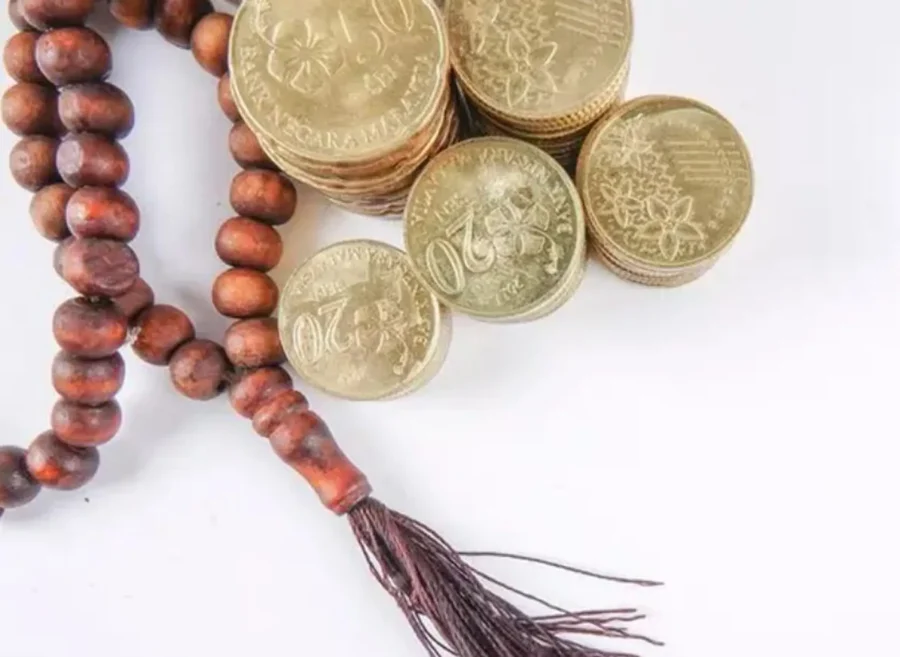The Bahraini Islamic finance industry is well-developed, and Fitch Ratings expects continued growth in 2024–2025, driven by banking sector consolidations, bottom-up demand, sukuk’s growing role in diversifying government funding and meeting fiscal deficits, and increasingly enabling regulations. Fitch rates over 80% of the US dollar sukuk outstanding from Bahrain (USD11.4 billion), with 90.3% rated ‘B+’ at end-2023.
We estimate the Bahraini Islamic finance industry at USD77 billion as of end-2023, split between Islamic banking assets (79%), outstanding sukuk (21%), and takaful contributions (0.2%).
The expansion in Islamic banks’ domestic market share (end-2023: 42%; end-2022: 38.4%) is partly due to Ahli United Bank B.S.C.’s ongoing conversion into an Islamic bank after its acquisition by Kuwait Finance House. Outstanding sukuk expanded 12.5% yoy (end-2023: USD16.1 billion), with 34% in the local debt capital market (2020: 27%), and the rest in bonds.
Bahrain has no history of default, and has received extensive and repeated financial support from Saudi Arabia, the UAE and Kuwait since 2011, which helps support market access. Takaful had a sizeable 35.6% share of the insurance sector at end-9M23, based on gross premiums (end-2020: 33.6%).
Higher oil prices and strong financial backing from partners in the GCC have eased operating environment pressures in Bahrain. The concentrated system in the smallest GCC economy are key challenges to both the Islamic and conventional banking sectors. The Bahraini debt capital market is mostly comprised of government issues.
Total Islamic banking assets expanded by 46.4% yoy (end-2023: USD60.9 billion), outpacing conventional banking assets, which fell 2.6% yoy. Islamic banks’ total market share reached 25.5% of banking system assets (including foreign assets) at end-2023 (end-2022: 18.5%). Bahrain’s Islamic banking market is the tenth-largest globally by total assets, based on IFSB data, behind the UAE, Kuwait, Turkiye, Bangladesh, and Indonesia, but ahead of Pakistan, Egypt, Jordan, and Oman. Bahrain has made significant strides in fintech and the adoption of digital payment.
Islamic retail banks are adequately liquid (end-3Q23 liquid assets ratio: 19.2%; end-2022: 17%), but less so than conventional retail banks (end-3Q23: 30.6%; end-2022: 32.8%) due to the notably lower availability of Islamic liquidity-management products. The capitalisation profile of Islamic retail banks was satisfactory (end-3Q23 capital adequacy ratio: 20.5%, end-2022: 21.2%), with conventional retail banks at similar levels, although Islamic banks’ capital ratios receive an uplift from the 30% alpha factor. However, Islamic retail banks’ profitability (end-3Q23 return on equity: 7%; end-2022: 10.6%) and asset-quality (end-3Q23 non-performing loans (NPL) ratio: 5.7%; end-2022: 4.8%) metrics have deteriorated, more than conventional retail banks’ (end-3Q23 return on equity: 10.3%; end-2022: 11%; end-3Q23 NPL ratio: 3.4%; end-2022: 3.3%).
Mergers and acquisitions are a recurrent theme. On 18 February, Al Salam Bank B.S.C. announced that it reached agreement to solely acquire KFH Bahrain, a wholly owned subsidiary of KFH Group, after renegotiating with KFH Group.
Esterad Investment Company acquired Venture Capital Bank in 2023, with the latter planning to merge with the former. In 2023, Dallah AlBaraka Holding Company, a majority shareholder of Al Baraka Group (ABG), increased its stake in ABG. On the takaful front, Solidarity Bahrain signed an agreement with Ahli United Bank to acquire its entire stake in the insurer Al Hilal Life and its subsidiary Al Hilal Takaful.
Increased sukuk and bond issuances are likely in 2024–2025. Bahrain has the highest fiscal break-even oil price in the GCC, forecast at USD96/bbl in 2024.
In 2024, Fitch also forecasts budget deficits at -2.9% of GDP. However, fiscal consolidation will continue – driven by improvements on non-oil tax collection and continued spending restraints – but from a weak starting point. Bahrain’s gross general government debt significantly exceeds the ‘B’ median.—Zawya










